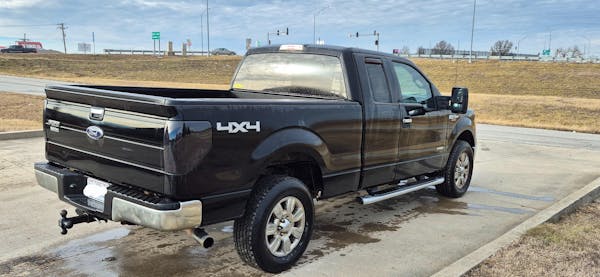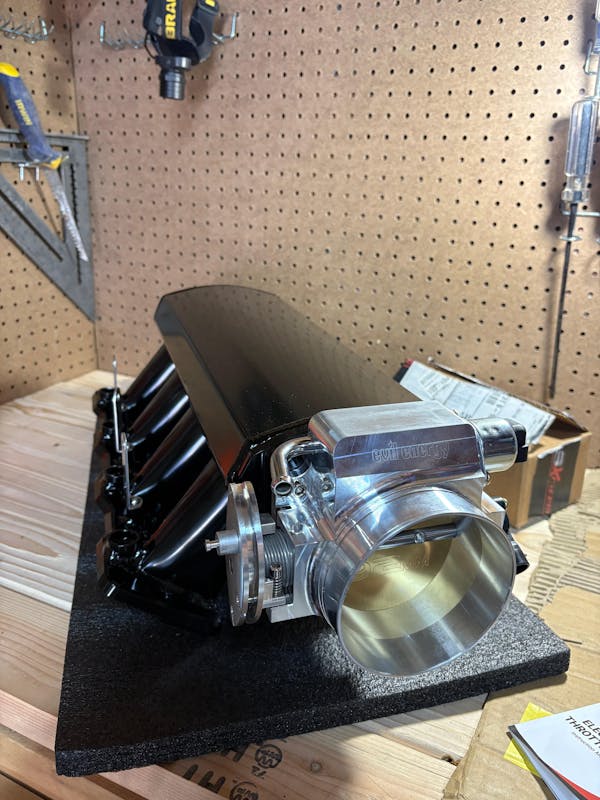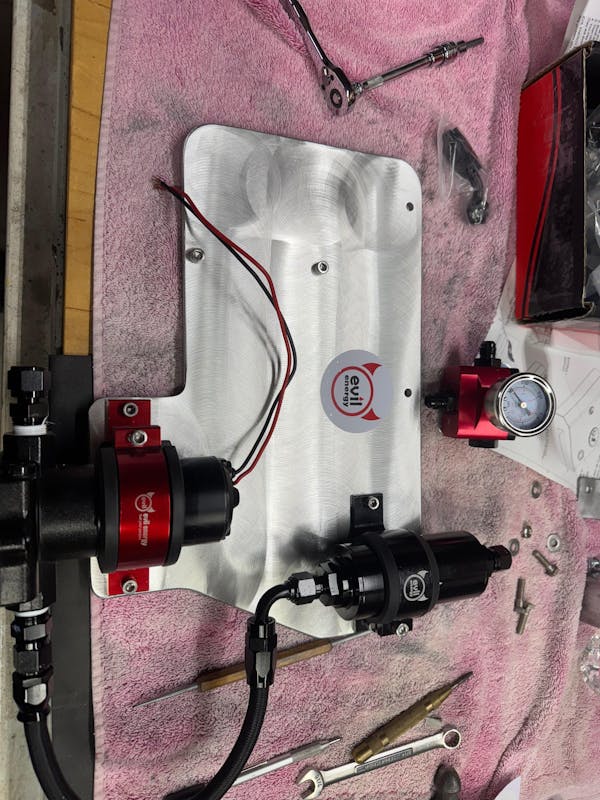How to Choose the Right Carburetor for a Chevy 350 (SBC) Engine
If you own or build a Chevy 350 engine, choosing the right carburetor can completely transform how your car drives. From smooth cruising to high-performance racing, the right setup helps your 350 SBC (Small Block Chevy) deliver maximum power, throttle response, and fuel efficiency. This guide walks you through everything you need to know about 2-barrel carburetors, performance carburetors, and the best options for your 350 Chevy engine.
Understanding the 350 SBC Engine
The Chevy 350 Small Block (SBC) is one of the most iconic V8 engines in automotive history. With its 5.7L displacement, reliable design, and massive aftermarket support, it became the heart of countless American classics — including the Camaro, Chevelle, Nova, and C10 pickup.
Its popularity among DIY builders and performance tuners comes from:
-
Easy availability of parts (especially carburetors and intakes)
-
Simple mechanical design that’s perfect for hands-on tuning
-
Strong torque and horsepower potential
Whether you're restoring a classic or building a hot rod, a well-matched carburetor for a 350 SBC is key to unleashing its full performance.

What Is a Carburetor and How It Works
A carburetor controls the air-fuel mixture entering your engine. It uses vacuum pressure to pull fuel into the airstream, mixing it precisely for combustion.
There are two main types used on Chevy 350 engines:
-
2 Barrel Carburetor: Uses two venturis (barrels) to mix air and fuel. Great for smooth daily driving and better fuel economy.
-
4 Barrel Carburetor: Includes two primary and two secondary barrels for higher airflow and horsepower. Ideal for performance and racing.
2 Barrel vs 4 Barrel vs Double Barrel – Which One Fits Your Build?
| Type | Airflow (CFM) | Pros | Best For |
|---|---|---|---|
| 2 Barrel Carburetor | 350–500 CFM | Simple, fuel-efficient, reliable | Daily driving, classic trucks |
| 4 Barrel Carburetor | 600–750 CFM | More airflow, higher HP potential | Street performance, muscle cars |
| Double Barrel (Dual Plane) | Variable | Responsive throttle, smooth transition | Street/strip builds |
Tip: If you want a balance of torque and economy, a 350 Chevy 2 barrel carburetor is ideal. If you’re chasing horsepower, go with a high performance 4-barrel carburetor setup.
What Carburetor Is Best for a 350 SBC Engine?
Selecting the optimal carburetor for a 350 SBC engine depends largely on your vehicle’s intended use and desired performance output. Each configuration offers specific advantages in drivability, throttle response, and airflow efficiency.
For Daily Driving
A balanced, easy-to-maintain carburetor such as the Edelbrock Performer 1406 (600 CFM, 4-barrel) or the EVIL ENERGY 350 CFM 2 Barrel Carburetor provides smooth throttle control, consistent cold starts, and reliable everyday operation.
The EVIL ENERGY model is particularly suitable for classic Chevy 350 applications, offering OEM-style fitment with upgraded materials for improved durability and fuel atomization.
For Street Performance Applications
For enthusiasts seeking stronger mid-range torque and a more responsive throttle, the Holley 600–650 CFM Double Pumper is a proven choice.
Alternatively, the EVIL ENERGY 350 CFM 2 Barrel Performance Carburetor delivers enhanced airflow and smoother transitions between primary circuits—ideal for mild to moderate performance builds.
For Racing or High-Performance Builds
Engines built for high RPM and maximum power benefit from the Holley HP Series 750 CFM, which provides excellent top-end airflow and fuel control.
While 2-barrel systems are less common in full race setups, EVIL ENERGY’s precision-calibrated performance carburetors can also serve as a reliable base for tuners looking to upgrade within class restrictions or vintage series.
Calculating the Ideal CFM
Use the following formula to determine the appropriate carburetor airflow:
CFM = (CID × Max RPM × Volumetric Efficiency) / 3456
For a 350-cubic-inch SBC engine operating at 6,000 RPM with 85% volumetric efficiency, the ideal range is approximately 515–600 CFM—perfect for most 4-barrel and high-performance 2-barrel carburetors.
Choosing the Best Performance Carburetor for Your Chevy 350
When selecting a performance carburetor, consider:
-
Airflow (CFM): Match your RPM range and engine efficiency.
-
Fuel Type: Choose a model compatible with your setup (gasoline or E85).
-
Choke Type: Electric or manual for easy cold starts.
-
Adjustability: Look for jets, idle screws, and secondary adjustments.
Products like the 350 CFM 2 Barrel Performance Carburetor are tuned for small-block engines — delivering smoother idle, improved torque, and better mid-range acceleration. It’s a smart upgrade for builders who want simplicity and consistent power.
Top-Rated Carburetors for 350 Chevy
| Brand | Model | Type | CFM | Best For |
|---|---|---|---|---|
| Evil Energy | 350 CFM 2 Barrel Carburetor | 2 Barrel | 350 | Stock replacement / restorations |
| Evil Energy | 350 CFM 2 Barrel Performance Carburetor | 2 Barrel | 350 | Street performance |
| Edelbrock | Performer 1406 | 4 Barrel | 600 | Daily driving |
| Holley | 650 Double Pumper | 4 Barrel | 650 | Street & strip builds |
| Quick Fuel | Slayer 750 | 4 Barrel | 750 | Racing |
How to Tune a Carburetor (DIY Step-by-Step)
-
Warm up the engine to operating temperature.
-
Adjust idle mixture screws for stable RPM.
-
Set idle speed using the throttle stop screw (around 700 RPM for SBC).
-
Check the vacuum gauge readings — steady = good mixture.
-
Test drive and fine-tune throttle response.
The 2 barrel carburetors from Evil Energy are particularly easy to tune thanks to accessible mixture screws and stable idle circuits, making them ideal for DIY tuning projects.
Common Problems and Fixes
| Issue | Possible Cause | Fix |
|---|---|---|
| The engine won’t idle | Idle circuit clogged | Clean jets, reset mixture |
| Rich fuel mixture | Float too high | Adjust float level |
| Hesitation or stumble | Accelerator pump issue | Replace diaphragm |
| Poor acceleration | Vacuum leak | Inspect intake gaskets |
Routine maintenance keeps your Holley 350 CFM carburetor or Evil Energy 2 barrel running like new.
Conclusion
Choosing the right carburetor for your 350 Chevy engine depends on your goals. For everyday reliability and DIY tuning, the Evil Energy 350 CFM 2 Barrel Carburetor offers plug-and-play installation. For a touch more performance, the Evil Energy 350 CFM 2 Barrel Performance Carburetor delivers noticeable throttle improvement and stronger mid-range response — without overcomplicating your build.
Whether you’re restoring, upgrading, or racing your Chevy 350 SBC, choosing the right high-performance carburetor will keep your classic running strong in 2025 and beyond.
About EVIL ENERGY Carburetor
EVIL ENERGY's mission is simple: to break the convention of the high-performance auto parts market being dominated by a few high-priced brands. We firmly believe that excellent performance should not come with a hefty brand premium. But we know that choosing the right EVIL ENERGY Carburetor is more than just buying a part; it's a critical decision. You might be asking: 'How Does a Carburetor Work?' 'How to Choose the Best Carburetor for Your Engine?' or 'How to Choose the Right Carburetor for a Chevy 350 (SBC) Engine?' This is what makes EVIL ENERGY different. We don't just offer carburetors with performance that rivals competitors at a more competitive price; we are your knowledge resource. Are you debating 'Holley VS EVIL ENERGY'? We have the comparison. Need to know 'How to Install a Carburetor?' We have the full tutorial. Our entire EVIL ENERGY Carburetor is 100% brand new (never rebuilt), Engineered for High Performance, and Ready for Easy Installation (Factory Replacement Ready). It's time to stop paying a premium for an old logo. When you choose EVIL ENERGY, you're not just getting a high-value, brand-new EVIL ENERGY Carburetor; you're getting the complete tutorials and support needed to finish your project.
-
Website: https://www.ievilenergy.com/
-
TikTok: @evil_energy_autoparts
-
YouTube: @ievilenergy
-
Instagram: @evil_energy_autoparts
-
Facebook: EvilEnergyRacing
-
Contact Us: support@evilenergy.com
More About Carburetor
FAQs of the 350 Chevy 2 barrel carburetor
Q: What size carburetor is best for a 350 Chevy engine?
Most stock 350 engines perform best with a 350–600 CFM carburetor. For daily driving, the Evil Energy 350 CFM 2 barrel carburetor provides excellent throttle response and reliability. For higher output builds, a Holley 600 CFM 4 barrel is a proven performance choice.
Q: What’s the difference between a 350 SBC and a 350 Chevy engine?
They’re the same engine. 'SBC' stands for Small Block Chevy, referring to the legendary 5.7L V8 that powered many Chevrolet classics like the Camaro, Chevelle, and C10.
Q: Is a 2 barrel carburetor good for racing?
Yes — a 2 barrel racing carburetor can work well in certain racing classes that limit airflow by design. However, most performance builders prefer 4-barrel carburetors for greater airflow and top-end power.
Q: How much horsepower does a 350 small-block have?
Factory 350 small-block engines typically produce between 180 and 370 horsepower, depending on the year and configuration. Modified or performance-built versions can easily exceed 400+ horsepower with the right carburetor and tuning.
Q: Is a 350 engine a 5.7L?
Yes. The Chevy 350 engine’s displacement is 350 cubic inches, which equals approximately 5.7 liters.
Q: Is a Chevy 350 small-block a V8?
Absolutely. The Chevy 350 is a V8 engine with eight cylinders arranged in a 'V' configuration, which contributes to its strong torque and classic rumble.
Q: Which engine is better — 327 or 350?
Both are part of Chevy’s Small Block family. The 327 revs quicker and was known for its smooth power delivery, while the 350 offers more displacement, stronger low-end torque, and broader aftermarket support — making it the more popular choice for performance builds.


![[20FT] EVIL ENERGY PTFE Fuel Line Kit, complete black hose & fittings set, 180-day return](http://www.ievilenergy.com/cdn/shop/files/Test-2025-Evilenergy-125598065_165x.png?v=1742144807)
![[16FT] EVIL ENERGY PTFE Fuel Line Kit, black braided hose, fittings, free shipping & return](http://www.ievilenergy.com/cdn/shop/files/Test-2025-Evilenergy-125598171_165x.png?v=1742144807)
![CPE Fuel Line[25FT]](http://www.ievilenergy.com/cdn/shop/files/25FTCPE_FuelLine_165x.png?v=1735220649)
![CPE Fuel Line[20FT]](http://www.ievilenergy.com/cdn/shop/files/20FTCPE_FuelLine_165x.png?v=1735220649)













